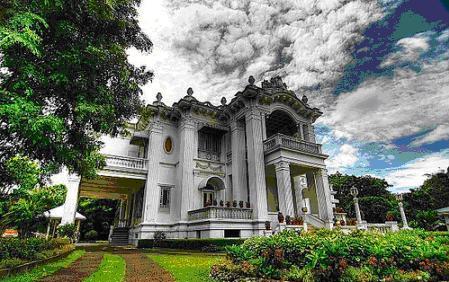This article was posted four months ago but has caused violent reactions from a reader. I am posting it here again with the paragraphs deemed by that reader a personal attack edited.
I am not a believer of dialectics. Loosely used, it means the art of argumentation or debate, but it is customarily used in one of its more restricted sense. In classical literature it refers to the tradition of continuing debate or discussion of eternally unresolved issues such as “beauty versus truth” or “individual versus the state”.
Or “rich versus poor”.
Possibly because the academe cushions me from the last dialectic, I am spared from the drudgery of the realities outside. For inside the academe it is not the content of my bank account that matters more but how much gray matter my cranium contains, the breadth and depth of my understanding of all the different truths trying to outdo each other in the bigger scheme of things.
This dialectic, no matter how hard it is for me to grasp, is glaring. So glaring that it forces itself beyond the perimeter that contains it.
In Iloilo, social gatherings are done in a manner that will allow maximum exposure of the family’s wealth. Let’s take for example a fictional wedding. This vow, which is supposed to be an expression of endless love, means more than just complying with the sacrament of holy matrimony. We see beautiful people garbed in a rather opulent fashion. The ladies posing their best smiles while wearing their red dresses possibly designed by a couturier from Manila. The men were equally handsome in their jackets and ties despite the hot and humid August sun.
The wedding is set in a white mansion, let’s say the one owned by the Lopezes, a prominent family in Iloilo; the mansion and its wide garden is often used for weddings of the sons and daughters of rich families in Iloilo as well as movie stars in Manila. It must be noted that the mansion is found in the middle of the city, just beside a major thoroughfare.

When I was still studying in Iloilo, whenever the jeepney I’m on passed by in front of the mansion, I would never fail to question the logic behind the decision of building a mansion right in front of a poor neighborhood side by side a crumbling used-to-be commercial area. But probably, the poor neighborhood and the nearly destitute state of the surrounding buildings serve as foils for the mansion. Beauty, if we go back to dialectic, is affirmed when anything ugly, despicable, or vile surrounds it such as poverty.
Going back to that almost perfect wedding scene, one can imagine a montage of scenes in a wedding and some incidental scenes before the wedding; if I may add, this will come out in the society page local newspaper featuring a wedding-of-the-year that tied the knot between a man and a woman who love each other, not mentioning cementing of bond between family whose wealth will remain secured within their circle.
Iloilo brags itself to be the place of origin of the richest family in the Philippines who owns a media empire, a power corporation that supplies electricity for the entire of Metro Manila area, and real estates, among others. In addition, there are lesser known families who consider themselves to belong in the upper class.
Most of these rich families, originally, were owners of sugarcane plantations during the beginning of the 20th century that amassed enough capital to diversify their investments. Now, despite the death of the sugarcane industry, they remain in the higher echelon of the social strata comprising the social elites of the city.
The distinction between the old rich and the nuoveau riche is not as much evident as the amount of wealth that they have, as some nouveaux riches have far more assets than the old rich families in Iloilo. Class can never be used to describe the opulence, ostentation, display of wealth in that fictionalized wedding scene. What then is class? It’s a refinement in taste, culture, manner, even language. It can never be acquired, if my theorizing is correct, for one has to be born with it. Ascribed, as social scientists say it.
My bohemian lifestyle in the academe is a far cry from this certain ‘class’ that is used to describe the two families who staged the wedding for the entire city to witness.
The nouveaux riches, being the subject of the constant ridicule by the old rich, are deemed too loud, garish, showy of their newly acquired wealth whereas members of the old money tend to be less tacky, more subtle, classy. They let their snobbishness speak for itself including all the possible meanings and subtexts that can be attributed to this unusually elevated chin. But looking at the montage, it appears to me that the distinctions, the line that separates these two entities are blurring. This old rich family ostentatiously paraded its wealth, with class, in the wedding, and allowing a full view of the passing pedestrian, decrepit public vehicles, and the poor neighborhood to behold is devoid of class.
A panorama of beauty amid poverty. A perfect dialectic.
True enough, a perfectly orchestrated wedding, done with all possible ‘class’ an old rich family in Iloilo can muster, in the rented palatial white mansion surrounded by the peering members of the other end of the dialectic is very classy I must say.
And scandalous, if I may add.
